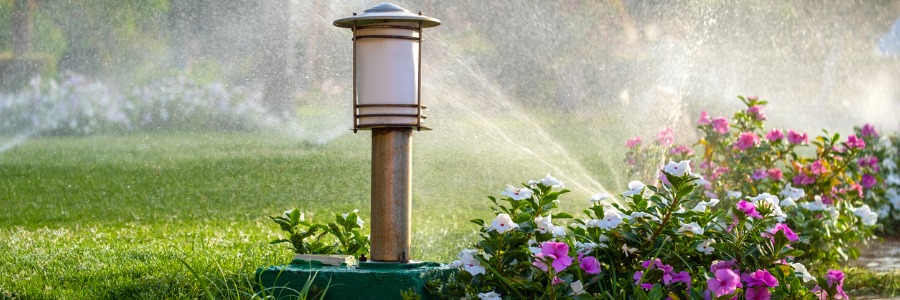
Smart Irrigation isn’t just about saving money on your water bill and keeping your own backyard landscape green, it means so much more on a global scale. In the agricultural industry, it’s about utilizing innovative, watering-saving technologies for global food production. It’s about conserving our planet’s most precious, life-sustaining resource. It’s so important that the Irrigation Association celebrates Smart Irrigation Month every July for an entire month.
Sponsored by HydroPoint, Smart Irrigation Month provides an opportunity for the industry to come together each year to showcase cutting-edge smart irrigation technologies and practices that are providing solutions to today’s and tomorrow’s challenges in the agricultural and landscape irrigation industries.
In the agricultural industry, older irrigation systems that leak or malfunction waste billions of gallons of water annually. But today’s efficient smart irrigation will save both water and money by applying water to reach root zones, as opposed to overspray and oversaturation which results in water runoff and waste. When farmers incorporate smart irrigation technology, they maximize crop yield, health and quality for global food production.
There are many ways to implement smart irrigation technology:
- Use a weather-based or soil-based smart controller that automatically adjusts watering schedules based on the most precise, high-resolution weather data available, and specific conditions at your site.
- Use drip irrigation, which slowly delivers water directly to the base of plants to seep deep into the root zone to prevent overwatering and wasteful runoff.
- Bury Soil Moisture Sensors into the soil around plants to electronically transmit to the Smart Controller when soil deep in the root zone is dry and needs water—not too much, not too little, but just enough.
- Install Rain/Freeze Sensors to prevent irrigation system from running when it’s raining and stop it when temperatures drop to freezing.
- Use rain barrels to collect run-off from rain on the roof to use in the garden.
- Check irrigation system for leaks and malfunctioning parts.
- Regulate pressure in the irrigation system to prevent water from flowing too fast and running off onto sidewalk or into street.
- Inspect sprinkler heads and nozzles regularly to make sure they are not obstructed, or over spraying.
Through innovative, efficient watering technologies, smart practices and smart technology in the agriculture industry not only maximizes yield of crop growth, it is efficiently managing and conserving Earth’s most precious, finite resource needed to grow food today, and continue growing food for generations to come.
Smart practices, smart technology, sustainable solutions are why the Irrigation Association celebrates Smart Irrigation Month throughout July each year. It’s sharing with the world how using smart irrigation technologies and practices is providing solutions for today and tomorrow’s economic and environmental challenges in both the landscape and agriculture irrigation industry.


